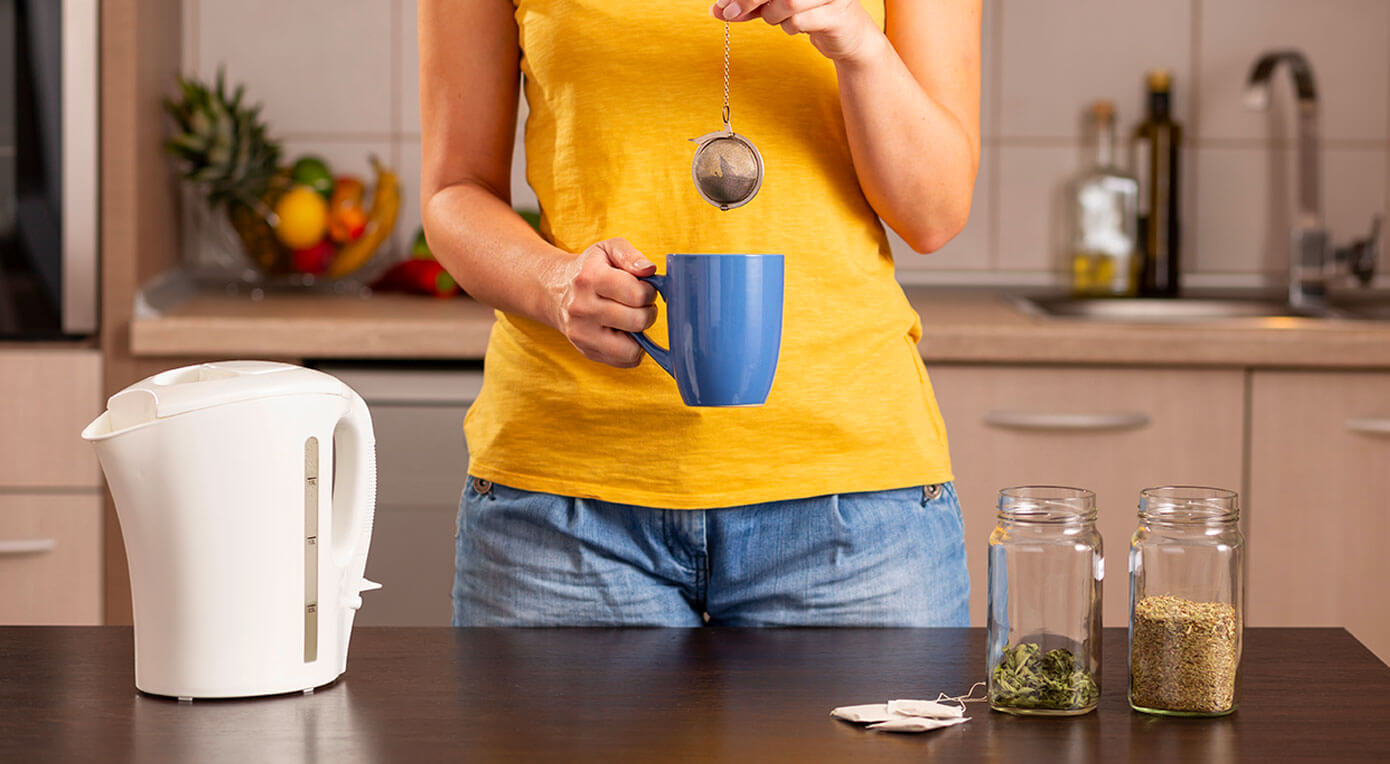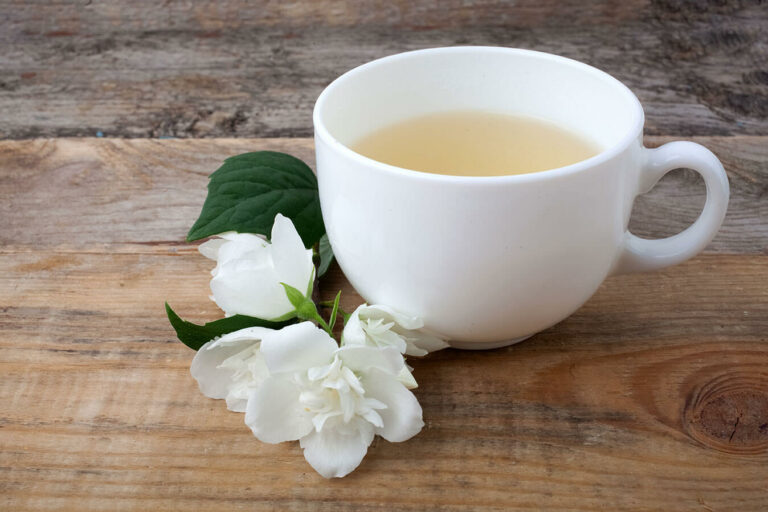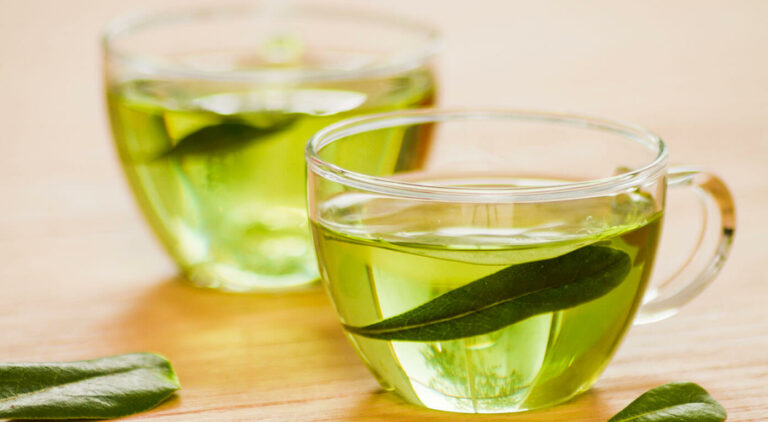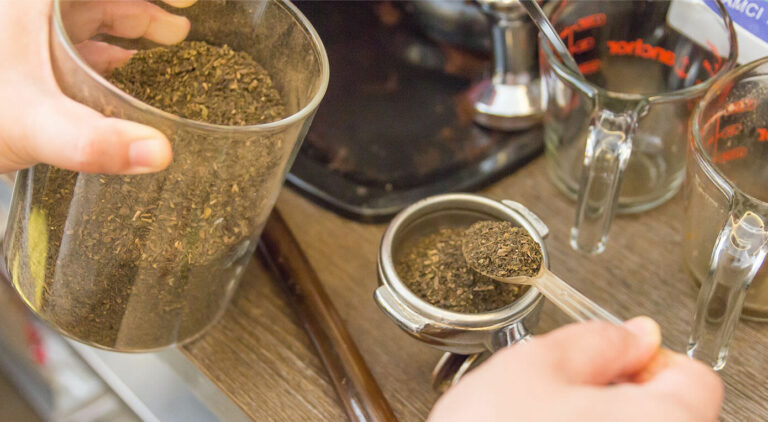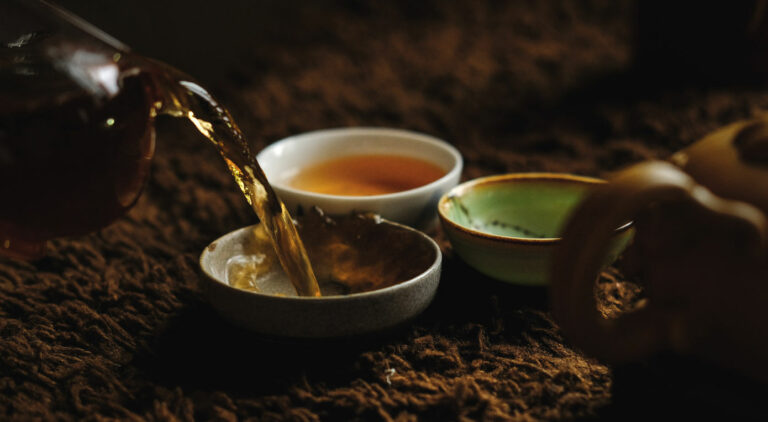Can You Mix Green and Black Tea? Discover the Truth Now
Tea is a drink enjoyed by people all around the world, and in many cultures, it is a near-daily staple. It’s important to understand both its beneficial effects and its side effects. Can you mix green and black tea? In this article, we’re going to take a look at what happens when you mix green tea and black tea.
Both of these true teas come from the same part of the Camellia Sinensis plant. It is also the same tea plant that is used to produce white tea, oolong tea, and more. Hence, they are related in many ways. Both have caffeine in them, although green tea contains about half as much as black tea does. And both have antioxidant properties that may help fight cancer, and heart disease and promote weight loss.
Due to different manufacturing processes, the leaves of the plant are made into different loose leaf teas. Both tea types have their own unique benefits. Black tea comes from the fermentation process of tea leaves, which means it contains higher levels of some compounds that can lead to better brain function and lower cholesterol levels.
There are also many health benefits of green tea (higher amount of flavonoids or group of protective antioxidants than in black tea), such as lower high blood pressure [1]https://www.nccih.nih.gov/health/green-tea —so mixing black and green teas together could be beneficial for those looking to improve their health.
However, there are also some potential adverse health effects despite the potential benefits of green tea and black tea. Would it hurt to mix different types of tea together?
Side Effects of Mixing Green and Black Tea?
There are many different teas that are consumed globally, each with its own unique benefits. Two of the most popular types of teas among tea drinkers are green and black teas; each contains a great number of antioxidants and polyphenols which have been linked to multiple health benefits.
However, there is some concern about whether or not it is safe to mix a cup of green tea with a cup of black tea. The main concern stems from the fact that both types of tea can contain a large amount of caffeine content.
Although caffeine can give you an energy boost, it is a stimulant that can cause negative side effects if consumed in excess amounts, such as jitters, anxiety, difficulty sleeping, and an increased heart rate. As both teas naturally contain caffeine, many people believe that mixing the two types of tea may result in too much caffeine boost for the person drinking it.
However, most studies have found that mixing green and black tea does not lead to an increase in caffeine consumption. It should be noted that this only applies when mixing both teas together naturally; adding sugar or artificial sweeteners to your tea will result in unwanted calories being added to your drink.
It is also important to note that green and black tea are made using different processes which can lead to differences in nutrient concentrations between them.

Why Should You Mix Green and Black Tea?
Health Benefits of Green and Black Tea
There are many health benefits associated with drinking black tea and green tea regularly on their own. Mixing them will only enhance their effects. Here are a few of the most notable ones.
Help You Lose Weight
Green and black tea are known for their ability to boost your metabolism, which can help you lose weight faster than drinking other types of tea.
A study by the American Journal of Clinical Nutrition found that people who drank both green and black tea each day lost more weight than those who consumed less or no teas at all. This may be because polyphenols and higher amounts of caffeine from both teas stimulate your metabolism by increasing fat oxidation and reducing fat accumulation in the body [2]https://academic.oup.com/ajcn/article/98/6/1619S/4577445.
The higher your metabolism rate, the more calories you can burn. This leads to losing weight and maintaining it easier than having a lower metabolism rate.
Reduce Risk of Heart Disease
Black tea contains antioxidants like catechins (which have been linked with a reduced risk of heart disease).
According to a study published in the Pharmacological Research Journal, both green and black tea reduces the risk of heart disease.
The study was conducted on different cohorts. In one cohort involving over 20,000 Norwegians, it was found that those who consumed five or more cups of tea per day reported lower blood pressure. People who drank tea regularly (one cup or more per day) had a lower risk of heart disease than those who did not drink tea [3]https://www.ncbi.nlm.nih.gov/pmc/articles/PMC3123419/.
According to the study authors, “Tea consumption may reduce risk factors associated with cardiovascular diseases such as hypertension and elevated cholesterol levels.”
Prevent Tooth Decay
Black tea has a high concentration of fluoride, which helps prevent tooth decay and cavities. Fluoride helps prevent cavities by strengthening the enamel on your teeth and remineralizing any areas that have already been damaged by acids. Additionally, black tea contains tannins that inhibit bacteria from adhering to enamel surfaces of teeth—which helps prevent plaque from building up over time!
A study by the Journal of Oral Microbiology found that the tea blend of green and black tea is effective against the growth of a kind of bacteria called Streptococcus mutans. You can mix green and black tea to help prevent plaque development and tooth decay [4]https://www.tandfonline.com/doi/full/10.1080/20002297.2018.1481322.
Help Fend Off Cancer
Green tea is also one of the most popular drinks in China. Green tea has many health benefits, including preventing cancer, heart disease and diabetes. Green tea is full of antioxidants, which help prevent cancer cells from growing and spreading throughout your body.
A study by Biomedicine & Pharmacotherapy Journal reported that both green and black tea leads to a chemical reaction that has the potential to prevent tumour growth [5]https://www.sciencedirect.com/science/article/pii/S0753332220300834.
Help to Slow Down Aging
Green and black tea contain polyphenols (including flavonoids), which are antioxidants that help prevent cell damage caused by free radicals (chemicals that cause aging).
A study by the Phytotherapy Research Journal found that drinking a blend of green and black tea helps to prevent mutation or changes in the DNA of a cell [6]https://onlinelibrary.wiley.com/doi/abs/10.1002/ptr.1038.
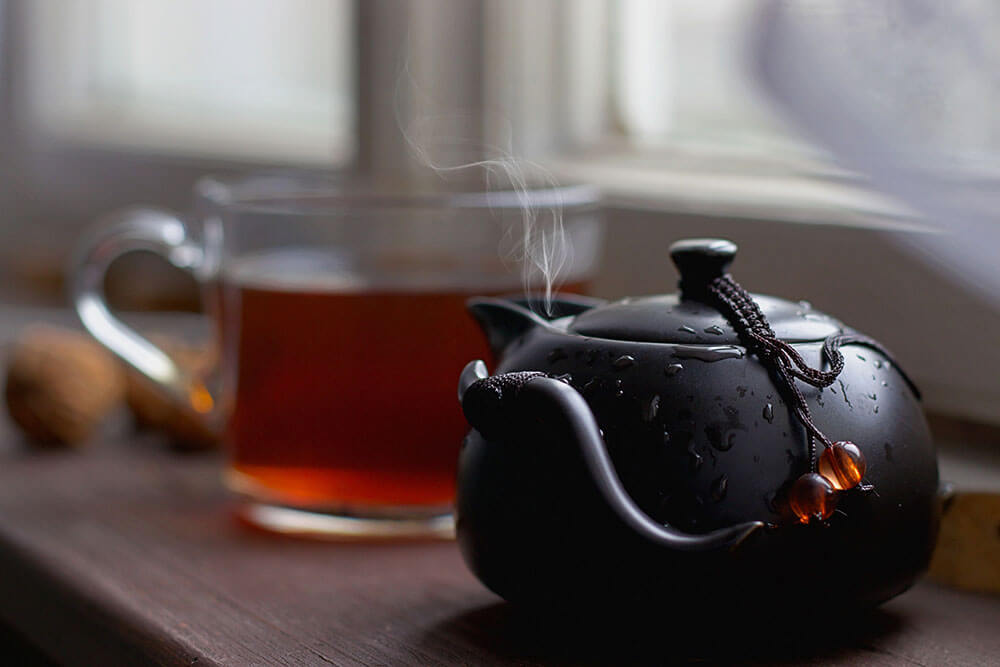
How Does it Taste Like?
The different flavor profiles of both green and black tea create a unique blend when they are mixed together. Whether mixing them is a good idea or not comes down to your personal preference and taste buds. Green tea and black tea are not the same. They have different flavors and textures, and they can be used in very different ways. But that doesn’t mean you can’t mix them!
When it comes to mixing green tea and black tea, the first thing you’ll want to do is understand how each type of tea works on its own. Let’s start with black tea:
Black teas are typically made with leaves that have been fermented before drying. This process gives them their unique flavor profiles, which include notes of pepper, chocolate, or citrus—depending on what kind of black tea you’re drinking! Black teas also tend to be astringent and bitter.
Green teas are made from unoxidized leaves that are picked at their peak, then dried quickly so all their flavor isn’t lost through oxidation during processing. These fresh leaves give green teas their distinctively light taste and sweet aftertaste—they’re less bitter than black teas because there’s no fermentation involved in making them!
The key difference between both teas is that the flavor of green tea is more delicate while black tea tends to have a strong flavor. Some may think that since the taste of green tea is subtle and light, it should mix well with the bolder flavor of black tea.
Others may think the contrast in flavors doesn’t go well together. In this case, a different way could be to mix green tea with weaker black teas.
How to Mix Green and Black Tea?
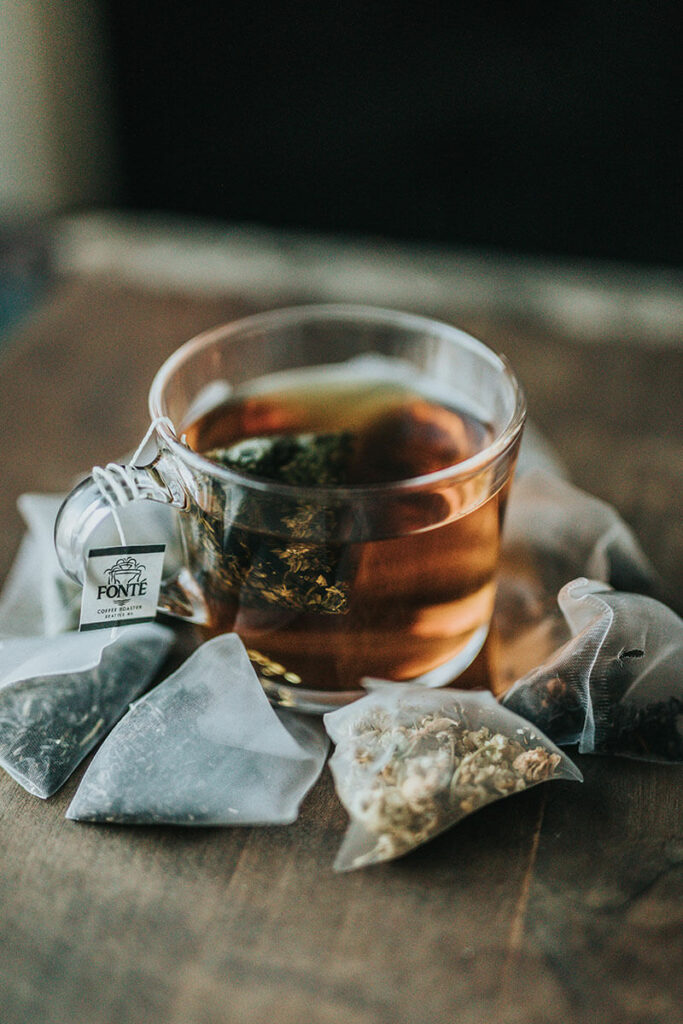
While you can technically mix green and black teas, some people think it’s much better to drink them separately in order to enjoy the actual flavors of each type of tea. The flavor profiles are different enough that it might taste strange or unappetizing to combine them.
However, if you do want to drink both green and black tea together, here are some combinations that might work well:
- Green tea leaves + black tea leaves
- Using both green + black tea bags but steeping them in hot water at different temperatures first before mixing them together
- Matcha green tea + blackberry-lemonade-flavored black tea
- Jasmine green tea + lemon-ginger-flavored black tea
- English Breakfast black tea + chamomile green tea
The easiest way to try this unique blend is by making a latte out of it. You can use any kind of milk you like (cow’s milk, almond milk) and add some honey or sugar if you prefer a sweeter drink.
To make a latte, simply brew up a pot of green tea and black tea together; then strain out the solids so all that remains is a clear liquid. Pour some milk into a cup or mug; then pour in equal parts green/black tea (based on whatever ratio you like) and stir until everything is dissolved into your preferred consistency.
Verdict: Can You Mix Green and Black Tea?
In short, it is perfectly fine and acceptable to mix black tea with green tea. There are many benefits to doing so and both teas complement each other well when combined together.
Green tea, like black tea, can be blended with other teas to create blends. Traditionally, if the green tea is blended with black tea (or any other kind of tea), then it becomes a green tea blend. These are usually made by second-flush green tea leaves, that have been left out in the sun to wither and dry a bit so they produce more of the delicate nuances that many lovers of green teas enjoy.
You should feel free to enjoy the black tea or green tea on its own but giving yourself a mixture of both black tea and green tea is a nice alternate treat and something to feel free about trying out for yourself.
References
